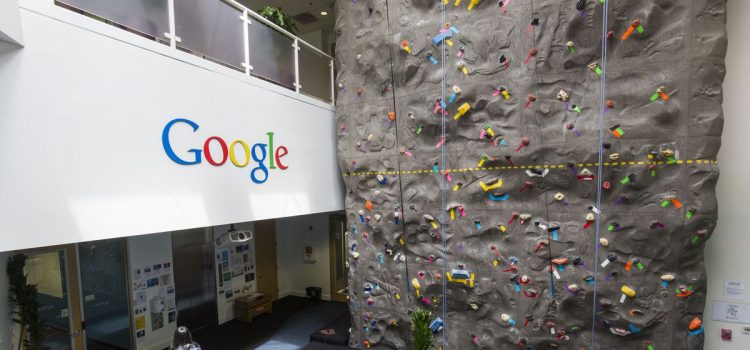


For nearly two decades, top-tier tech companies like Google and Facebook (now Meta) were known for their rapid hiring, luxurious perks, and corporate cultures of abundance.
But now, as rising inflation, the war in Ukraine, and other macroeconomic factors have caused marketers to slash their advertising budgets, Big Tech’s work culture is changing. In recent months, Google and Meta have drastically slowed down hiring, cut back on perks like employee travel and laundry service, and begun reorganizing departments. Employees fear deeper staff cuts are ahead. Some economists say these moves are a sign that we’re heading into a “white-collar recession,” or a decline in job growth and security for professional workers, not just in tech, but also in other high-skilled industries.
There’s more to these shifts, though. The external economic pressures are real — but it’s also a good excuse for behemoths like Google and Meta to clean house.
As Google’s parent company Alphabet and Meta have grown into corporate giants worth $1 trillion and $385 billion, respectively, they’ve swelled their staffing to over 150,000 and 80,000. Now, economic circumstances are giving management an opportunity to reset expectations, pressure staff to start working harder with smaller budgets, and show some workers the door.
“At companies like Facebook and Google, for the longest time expenses were unlimited,” said one Meta executive who recently left the company and spoke under the condition of anonymity for fear of professional repercussions. “There was a lot of fat in the organizations. It’s very healthy to cut that fat. … The party is over.”
It’s not only executives who think that some Big Tech companies have become too bloated, but some rank-and-file employees too. Ahead of the 2020 presidential primary elections, Recode reported that Google and Facebook employees donated the most to candidates like Elizabeth Warren and Bernie Sanders who wanted to break up Big Tech, arguing that making these companies smaller could return them to their more scrappy and productive early startup days.
Google and Facebook are still two of the most profitable companies in the world, whose annual revenue rivals that of the entire GDP of some countries. Unlike smaller tech companies, they can afford to make payroll and weather times of economic downturn. But, some industry insiders said, it could be to these firms’ advantage to cut more than necessary to drive productivity and demonstrate to shareholders that they’re being financially responsible. Meta’s share prices have dropped by about 60 percent in the past year, and Google parent company Alphabet is down by about 30 percent in the same time period.
Both Google and Facebook have candidly warned employees that for those who remain, the company will start demanding more of them. Google CEO Sundar Pichai said in an internal memo in July, reported by CNBC, that Googlers “need to be more entrepreneurial” and work with “greater urgency, sharper focus, and more hunger than we’ve shown on sunnier days.” Meta CEO Mark Zuckerberg put it more bluntly in a company all-hands in June, according to the New York Times, saying “I think some of you might decide that this place isn’t for you, and that self-selection is okay with me … Realistically, there are probably a bunch of people at the company who shouldn’t be here.”
For employees on the receiving end of this executive pressure, the sense is that overnight, their job security is no longer so secure. Even though the cuts at Facebook and Google have only recently started, many employees are already feeling the change.
One current Google employee told Recode that just a few months ago, employees came to Google’s regular all-hands meetings, which the company calls TGIFs, with regular questions about whether they would get raises to match inflation. Now, the employee said, a more common question among employees is whether there will be layoffs.
“All the talk about compensation goes away because people are scared,” they said.
One Google employee Recode spoke with said most of their colleagues accept management’s cost-cutting measures.
“People have been really understanding,” they told Recode. “because at the end of the day we still have it so much better than other people.” Still, they added that the company’s recent cuts and emphasis on productivity “has created a sense of nervousness and uncertainty in what we can expect from the company going forward.”
That nervousness and uncertainty extends to employees’ future job prospects, too. Usually, Google employees unhappy with their job could easily seek an offer from Meta, Apple, or other nearby tech giants jockeying for talent; these days, most tech companies have slowed new hiring.
“There’s definitely a sense of ‘wait, there may not be a chair at another tech company if the music stops here,’” said one Google employee.
The fact that in just a few months, the dynamics of the tech industry have turned upside down, and that employees now have less leverage over their employers, represents one of the most significant shifts the sector has seen since the dot-com bust of the early 2000s.
In a cynical way, that Google employee mused, even if management’s talk about productivity doesn’t amount to more actual efficiency, it is effectively working to get workers to stop pushing for more benefits. And it shows shareholders that Google is serious about its stock performance.
Google and Meta have both seen significant stock decline in the last two years, due in large part to rising inflation, the war in Ukraine, changes to Apple’s privacy settings, and rising competition from TikTok.
“When recessions come along or when things are softening, I think these companies that are very well run take that as an opportunity to streamline things internally,” said Keval Desai, a former Google executive from 2003 to 2009 who now runs a venture capital firm he founded, SHAKTI. “I do believe that smart companies take opportunities and make unpopular decisions.”
But unpopular decisions can be difficult to implement. And improving productivity at massive corporations like Facebook or Google isn’t as easy as simply that demanding employees work harder.
Some Google employees Recode spoke with said that they think in order to be more productive, executives should focus on giving teams clearer direction.
“There is that fear that people aren’t working hard enough, but what I see is a lot of people working hard with unclear business priorities,” said a Google employee. “Maybe they’re not making the best business decisions, but they don’t know that.”
One example: Google seems to be unclear about how much it wants to prioritize its hardware line. The company seemed to be moving forward with developing its next Pixelbook laptop product until it canceled the latest planned release and disbanded the team working on it earlier this month, The Verge reported.
And in March, Google laid off 100 Google Cloud workers, giving them 60 days to find new jobs within the company — which some employees petitioned against, asking for more time. The layoffs came despite the fact that Google Cloud, while still an unprofitable division, is growing its revenue considerably.
Laszlo Bock, co-founder of workplace software company Humu, who headed Google’s People Operations teams from 2006 to 2016, said he agrees with the idea that some major tech companies aren’t as operationally disciplined today as they could be, and that it could be time for change.
“I think there is a way for companies to navigate that, though, which is you need to have a clearly articulated set of principles about how and why you want to change.” said Bock.
At Google, the company is increasingly focusing its research efforts on AI, and at Meta, the company is prioritizing VR/AR work to support its metaverse plans, as well as its TikTok competitor, Reels.
Google recently made major cuts to its in-house research lab, Area 120, on projects that weren’t directly focused on AI. Meta has also reportedly scaled back its new experimental product division to refocus exclusively on Reels. More broadly, Meta is planning to cut workplace spending by 10 percent, the Wall Street Journal recently reported, in part through staff reductions — and has started quietly disbanding some teams, giving employees 30 days to find new jobs within the company.
Some Meta employees are trying to find new positions on metaverse-related projects, which is what Zuckerberg has made his highest priority, said one employee who recently left the company.
“Definitely over the past six to nine months there’s been a mad dash toward [Reality Labs], and particularly within the metaverse product group,” said a former Meta employee who recently left the company. “It feels like everything else is less secure in terms of the company’s future.”
Some employees and industry experts worry that too much cost-cutting could backfire by stifling employee innovation: the very kind of creativity that made these companies great.
“Traditionally, the way you drive productivity is you manage more tightly, you set goals, you cut costs. And the way you drive innovation is you give people more freedom and some flexibility and room to experiment and fail,” said Bock. “So I’m not sure how you increase productivity and increase innovation at the same time.”
